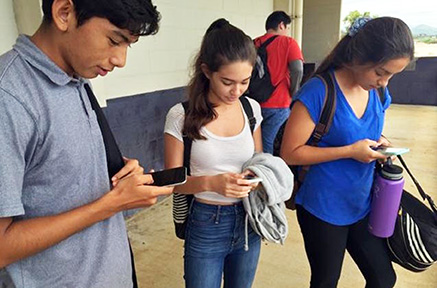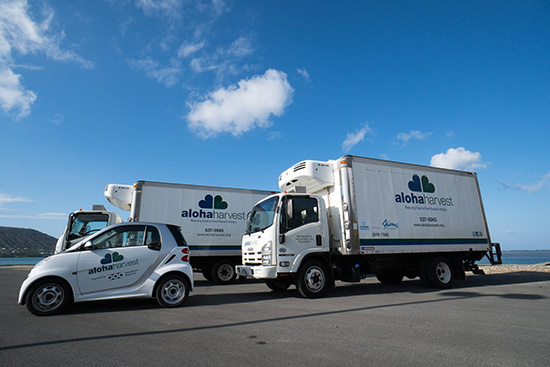
Technology like iPods and MySpace were introduced to millennials during their teenage years. But Generation Z was born with a digital footprint and soon labeled screen addicts with eight second attention spans.
Generation Z (or the Digital Natives) is the group of people after Generation Y (commonly known as the millennials), whose birth years range from the mid or late 1990s to the 2010s. The millennials’ birth years range from the early 1980s to the early 2000s.
Technology
Generation Z is the first generation to be raised in the era of smartphones and many of its members do not know a time before social media.
Technology has affected the way people go about their daily lives and has radically changed the way members of Generations Y and Z experience adulthood from how their parents did.
“Gen Z-ers use technology and social media to connect with their peers, stay updated with pop culture, explore their identity, learn and play,” said Chris Hudson, a parenting coach.
“Technology is great because it pushes innovation, ideas, startups and change,” said Emily Hodges, a marketing and PR lead at the mobile advertising network Kiip. “But at the same time, we are so connected to our devices, especially Gen Z.”
This nearly constant connectedness to each other is beyond what teenagers of previous generations could have dreamed of.
“It seems that everyone in this generation is born knowing how to use touch screens and access the Internet,” said Ryan Manuel. “There is no learning curve like there was in my generation or the one before mine. Textbooks and chalkboards are replaced with PowerPoint and SMART boards and friends are an iMessage away.”
While the millennials infamously pioneered the Facebook beer-pong selfie, many in Generation Z have embraced more anonymous social media platforms like Snapchat and Tinder, where incriminating images disappear almost instantly. Gen Z-ers are aware of their personal brand and have watched the millennials screw up by posting too openly.
Gen Z-ers are torn by the need to upkeep their personal brand via social media but resist being defined by it. They seek social validation but are looking to differentiate themselves from the rest.
Market researchers are realizing that the ways they once marketed to Gen X are outdated and unappealing to the members of Generation Y and Z.
“When marketing to Generation Z, brands want to convey a kind, empathetic image, as well as appear friendly and socially responsible,” Hodges said. “If you don’t align your brand image and reputation to Generation Z’s values, you’re going to lose your audience.”
Generation Z values a more diverse society that includes people from different ethnic groups, races, religions and sexuality.
“As digital natives, they grew up with technology and have deep understanding of its uses and potential,” Hodges said.
“It also means they’ve been exposed to brand messaging in multiple formats, multiple times a day since they were born. They also have a heightened awareness of marketing schemes and understand their role (and power) as consumers.”
Members of older generations see Gen Z’s constant connectedness as “laziness and self-centered,” said Jay Higa, a baby boomer. “Technology is the main focus of their lives, and I can’t see what they’ll contribute to this planet.”
It is understandable that the stereotypical ambitious, workaholic baby boomer may be critical of one who does not share the same ethics and values. The independent Gen X-er may not appreciate the team orientation and desire for constant feedback. At the same time, the social-minded Gen Y-er might not understand the priorities of the other generations.
Technology is almost like another body part, and we need to learn how to detach.
The War on Terror
While the millennials had their peaceful adolescent world shattered by the events of 9/11, the members of Generation Z were born into a world of hardship.
“My generation is defined not only by technology but also the events of 9/11 and everything that followed,” said Amy Lee.
They have witnessed school shootings and the bombing of innocent people that have empowered them to make their voices heard.
Gen Z is very conscious and security-minded, but they also have a desire to change the world. They have never known a world without widespread terror, and it fuels them to take action for change.
In the absence of finding a tangible way to show their support for tragic events, many digital natives have turned to what is familiar–social media.
Showing support through trending hashtags on social media has become popular among the younger generations. Events in Ferguson, Missouri, led to #michaelbrown after Michael Brown, an unarmed black teenager, was shot and killed by police officer Darren Wilson. The shooting in Ferguson brought attention to police brutality against black minorities and led to #blacklivesmatter.
As the Supreme Court made its final decision on the legalization of same sex marriage, many showed support via #lovewins.
In November 2015, the coordinated terrorist assault in Paris led to #prayforparis as people around the world showed their support for the people who were killed or injured during the attacks.
“Support via social media is useless, but it’s how I stay connected and show empathy for them,” Lee said.
What to Expect
Like every other generation, the digital natives display generalized and unique traits. Economic, political and social background influences their culture and creates a lasting impact. Changes cannot be fully understood, usually until the unique characteristics of the next generation become recognized.
The impact of societal events makes more significant impressions on youth when they are forming their core values. These societal events affect other generations, but they are often interpreted differently through the lens of maturity and experience.
The hardships that the members of Generation Z have experienced has led to a greater acceptance of diversity.
Young people are more tolerant of races and ethnic groups than older generations (47% vs. 19%), according to a study conducted by the U.S. Chamber of Commerce.
Generation Z is the most racially and ethnically diverse generation in U.S. history. 61% are white, 19% Hispanic, 14% black and 5% Asian, according to a study released by the Center for American Progress. The percentage of minorities has increased from 32.9 in 2004 to 37.9 in 2014, according to the U.S. Census Bureau. Gen Z is also the most diverse generation in terms of birthplace and religion.
These demographic shifts are reflected at the cultural level too. Attitudes on social issues have shifted, in some cases drastically, in the decade since millennials were teenagers.
Same-sex marriage, for example, has gone from a controversial political issue to a constitutional right recognized by the U.S. Supreme Court. For today’s 14-year-old, the nation’s first African-American president is less a historic breakthrough than a fact of life.
“America becomes more multicultural on a daily basis,” said Anthony Richard Jr., a member of Gen Z. “It’s exponential compared to previous generations.”
Society tends to either romanticize youth or criticize the things they’re doing differently. The reality of Gen Z, however, lies somewhere in between.
They face many of the challenges that everyone faces at that life stage—transitioning from school to work, separating from parents and forming their own identities. But they’re doing so in an ultra-connected, fast-moving technological age.
by Deborah Higa, Ka ‘Ohana Staff Reporter




